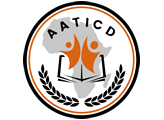Why Attend
With so many aspects to attend to, the area of document archiving and storage is often over-looked and is always heavily underrated. The truth is that poor document management can cost companies a lot of valuable time and money.
ISO standard 15489: 2001 defines Records Management (RM) as the field of management responsible for the efficient and systematic control of the creation, receipt, maintenance, use and disposition of records, including the processes for capturing and maintaining evidence of and information about business activities and transactions in the form of records.
Electronic Records Management (ERM) ensures your organization has the records it needs when it is needed.
Course Methodology
This course is highly interactive and utilizes methodology including group discussions, case studies, videos, participant presentations, and problem-solving scenarios.
Course Objectives
By the end of this course. One must be able to:
- Create and use data files (which includes files created using statistical and database management programs)
- Identify and solve problems related to the coordination and maintenance of effective office procedures and processes.
- Effectively work with others when controlling confidential information.
- Understand the judicial use of electronic records (i.e. addressing the issues and conditions under which electronic records can be admitted in courts as evidence)
- Distribute and sort information.
- Update file storage systems as needed and as the business develops and grows.
- Processes for easy file storage and retrieval.
- Classify and cross-reference all relevant business documents.
- Monitor the status of items within the file storage and retrieval process.
Target Audience
This course is designed for individuals who manage, or who are involved with, any aspect of document control and records management. This includes records and information managers, in-house counsel, privacy officers, information security and protection managers, litigation and discovery staff, compliance officers, internal auditors, IT and enterprise content management professionals, and administrative managers.
It has been specifically designed to support activities across all types and sizes of organizations and sectors working locally and globally.
Target Competencies
- Records Management
- Document control
- Information management
- Information asset identification
- Business case development
Location:
South AfricaTraining Dates:
Each course starts every Monday of each week. Please book your training on a date that is a Monday.Course Duration:
Unit Standard:
NQF Level:
Number of Credits:
Course Fees
Note: Please fill in the online application form on the left or bottom if this page to receive a quotation with detailed pricing from AATICD.How to Apply:
To Apply Simply Fill in the Online Enquiries / Applications form on the Right Sidebar or Bottom of this website https://www.aaticd.co.zaNB:
When filling the online application form; please take note of your desired Training Month, Duration in Weeks and Training Session. This will give us the exact dates you will be attending your classes.Also note that Tuition Fees must be paid upfront on or before training start date. This is to ensure that all resources are made availabe for you before you start. You will not be allowed into training if fees are not paid and verified.
Also note that Tuition Fees Cancellations must be made 14 business working days before the starting date of training. This will allow us to do a 50% refund of the total amount paid. If cancellations are made thereafter note that no refund will be made to delegates.
Tuition Fees include teas and lunch as well as either a laptop or tablet which a delegate will take home free of charge.
Tuition Fee DOES NOT include Accommodation, Dinners and other Extra Curricular Activities or Incidentals. Delegates are expected to fund this on their own. AATICD will not be held accountable for any incidents to delegates.
In-House Trainings are also available for 3 or more delegates for any duration. Please consult with our Administration for such In-House training bookings.
Course Outline
Introduction
- Electronic records: the new archival frontier
- Digitalization of paper records
- Megatrends in records management
Electronic Records management
- Developing and implementing effective shrinkage controls.
- Implementing control measures with individuals to ensure smooth running systems.
- Administrative Reports (especially annual and biennial reports).
- ICT Applications in Archives and Records Management
- Preservation Management of Archives and Records
- frequency of use (daily, monthly, yearly);
- administrative and operational need served by the record
- legal and fiscal regulations governing retention
- Business process management (BPM)
- Case management and matter management
- Enterprise content management (ECM)
- Scanning
- Web content management (WCM)
Securing Electronic Records
- Nature of confidential information.
- Systems and procedures for dealing with confidential information.
- Securing documents in an appropriate manner.
- Securing documents within an appropriate timeframe.
- Securing documents and information without compromising any relevant stakeholders
- Transparency
- Integrity
- Security
Introduction to Digitization and Standards
- Introduction to digitization and file management
- Managing structured and unstructured data
- Scanning and capture
- Workflow
- Metadata, indexing, and classification
- Enterprise search and archiving
Compliance, Regulations, and Digitization ISO 13008
- ISO standard 15489
- ISO 13008 digital records conversion and migration
- Archiving and preservation
- Data protection and data privacy
- Document and records management compliance




